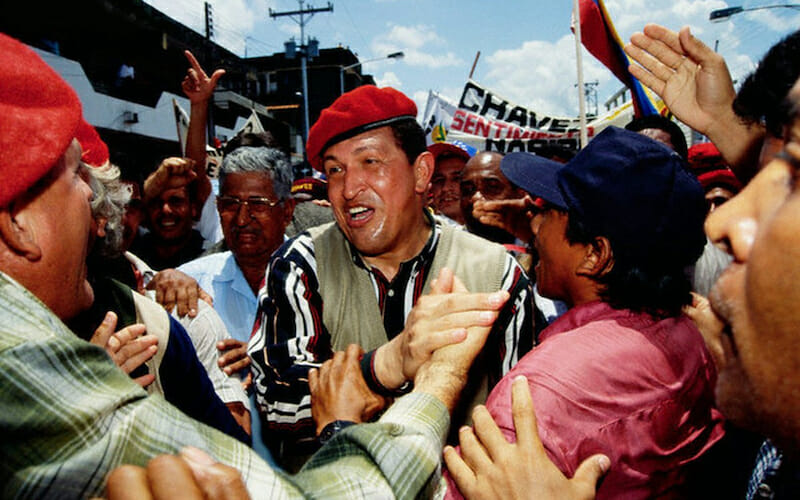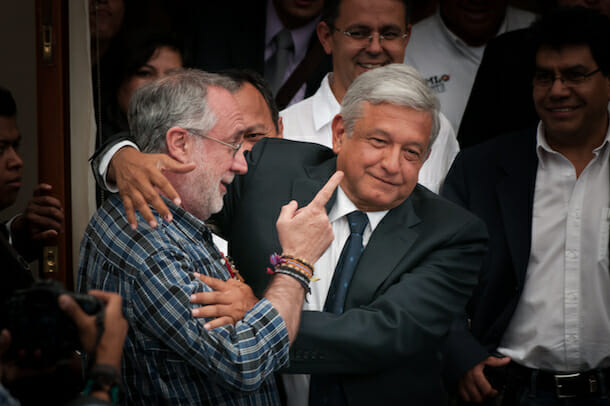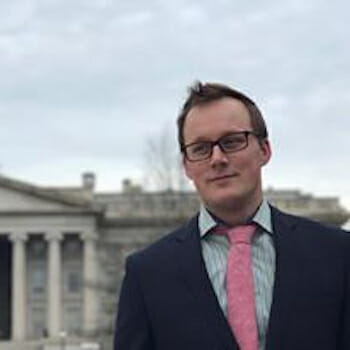
Populism in Latin America
Populism is not an intrinsic part of Latin America. It is a learned one, and it will continue to be a staple of the Latin American political system until something changes. Anti-establishment politicians like Evo Morales of Bolivia, Cristina Fernández de Kirchner in Argentina, and populist trendsetter Hugo Chávez, the former president of Venezuela, have arguably marked the beginning of a new era of populism in Latin America.
This is a story that we have heard before…Latin America’s reactionary-style of politics often cycles the region through a barrage of leftist and rightist populists who claim to be the cure for the social, economic, and political ills caused by the institution, elitists, foreigners, [insert enemy here]. Regardless of whether this happens today, tomorrow, or a year from now, it will happen. It always does, so the real question that we should be asking ourselves is not if or when, but what can be done to help the region establish durable and independent institutions so the Latin American electorate aren’t forced to concentrate their hopes on one lone-savior. The underlying problem is not that there are more Latin American populists, but a protracted fundamental weakness in the Latin American political system.
A fresh batch of “saviors” are popping up all over Latin America, and the explanation behind their campaigns’ success is quite simple. There are no other options. Former President-elect and the first female President of Brazil Dilma Rousseff was impeached by a vote of 61 to 20 in the upper house for breaking budgetary laws. One of the two likely contenders who is fighting for the job is former Brazilian President Luiz Inácio Lula da Silva, who, like Rousseff, is facing corruption charges for collaborating in illegal bribes. The recent scandals have paved a wide-open path for candidate and political disruptor Jair Bolsonaro to throw his hat in to the ring.
Having been referred to as “The Donald Trump of Brazil,” conservative congressman Bolsonaro’s popularity has grown despite his off-color statements in which he called a woman ugly and undeserving of rape, expressed his preference for a dead son as opposed to a gay one, and touted support for Brazil’s former military and dictatorial regime. (Bolsonaro dedicated his impeachment vote against Rousseff to a former army colonel during the military regime’s rule, Carlos Alberto Brilhante Ustra. Ustra oversaw the operations of the same torture unit that tortured Rousseff after her capture in the 1970s). Congressman Bolsonaro has swooped in, mobilized anti-establishment support, and is currently neck and neck with Lula da Silva. In July of 2018, Brazilians will choose between an alleged corrupt politician and a radical populist for president. What is a Brazilian supposed to do? They have reason to lack faith in the political institution and the candidates who represent it. It should come as no surprise that they are clinging to the candidate who, forgive my candor, will “drain the swamp.”
Brazil is one among many Latin American countries that faces a populist threat. The presumptive nominee in the upcoming Mexican Presidential election is Andrés Manuel López Obrador, or AMLO as he is commonly referred. In what would likely lead to a political nightmare for any ordinary politician, AMLO’s populist tendencies and the electoral support gleaned from such tendencies have isolated him from the potential backlash of a less than ideal background.

Despite having served as the mayor of Mexico City when the city experienced an upward spike in crime (2000 – 2005), the numerous scandals that marred his mayoral administration, or now as candidate for president having yet to enumerate any potential plans for implementing policy, polls suggest that Mexicans see him as a hero. In the traditional populist style, AMLO supported increases in social welfare benefits while concomitantly lacking the coherence of a long-term economic policy – a short-term fix to a long-term problem that ultimately serves no one, and the rhetoric he dispenses is an obvious capitalization of the frenzy of paranoia that fuels the populists’ anti-establishment campaign.
Seven other countries in Latin America (Chile, Colombia, Costa Rica, Ecuador, Honduras, Paraguay, and maybe Venezuela) will accompany Mexico and Brazil in 2018 and 2019 to the polls. As nearly two-thirds of Latin Americans cast their votes, many observers express concern about the direction of these elections. The uptick in cases of corruption and other forms of political dishonesty have caused widespread disenchantment with the idea of democracy in Latin America. Polling indicates that Latin America is the least satisfied region in the world with democracy, and there is an uncomfortably high level of support in favor of military rule of government. The increased propensity for anti-establishment sentiment plus the magnitude of votes that will soon be cast are a legitimate cause for concern that Latin Americans are or will be seduced by populism.
Perhaps the escapades of the famous liberator Simón Bolívar engendered a cultural norm in Latin America in which the idea of a lone-protector is held in high praise. This is only a hypothesis, but whatever its source, this cultural ideology manifests itself today in the shared support for an anti-establishment, anti-elitist, and even anti-Washington figure who looms larger than party and larger than politics. The pitfalls of populism are well-known. Whether from the left or the right, populism invariably leads to the implementation of backwards economic and social policies, and once power begins to slip away from the leader (which it inevitably will), the denigrated systems of checks and balances and other important institutions allows the populist to consolidate power in very undemocratic ways. The hard turn to populism has always led Latin America astray, further from building the economic, social, and political stability that it so desperately needs.
Back to the question at hand…what can be done to resolve the decades, if not centuries, long political crisis in Latin America? The U.S. has undeniably played a large role, what with the generations of intervention, occupation, economic exploitation, covert operations, etc., and as such maintains a degree of responsibility. Setting aside purely diplomatic or altruist motivations, it would be in our best interest to make the effort. A strong and stable Latin America would offer a vast assortment of opportunities in just about every imaginable industry. So, why hasn’t this happened already? Aside from some of the more obvious answers (the will is not there, it is not the U.S.’ job, we have enough problems to fix at home, etc.) a very likely explanation is that the forces that allow populist leaders electoral success are the same obstacles that stand in the way of progress: long-term solutions are not usually viable political options.
Long term problem-solving doesn’t help to get anyone re-elected, therefore there is a tendency to lean on short-term gains in which responsibility can be immediately claimed. This is nothing new, but it is worth pointing out. It would be worth even more if we could set aside political motivations and work with Latin America to develop a mutually-beneficial set of policies to help the region grow and become economically, socially, and politically sustainable for the long-term.
